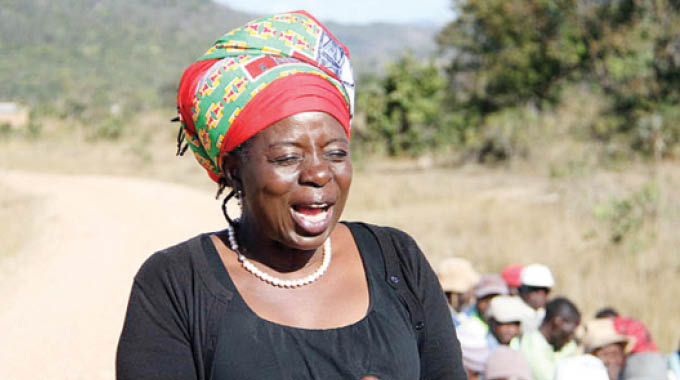Raw commodity exports exposing Africa to external shocks: Dr Nzenza

Mashudu Netsianda, Senior Business Reporter
OVER reliance on raw commodity exports renders Africa vulnerable to external shocks and the solution lies in transforming the continent from a raw material exporter to a producer of market-competitive value-added goods, Industry and Commerce Minister, Dr Sekai Nzenza, has said.
By producing market competitive value-added goods, Africa’s value chains would, therefore, be linked to global chains.
The minister said this during the inaugural Connect Africa Symposium that was held alongside the just ended 62nd edition of the Zimbabwe International Trade Fair (ZITF) in Bulawayo on Thursday.

Dr Nzenza, who stressed the need for a holistic rethinking, called for a new approach where Africa can derive optimum economic benefits from its abundant resource endowment.
“Most of the African countries still rely heavily on production and export of commodities with minimum value addition and even fewer forward and backward linkages to other sectors of the economy,” she said.
“Over-reliance on exports of raw commodities renders Africa vulnerable to external shocks.”
Dr Nzenza said development of integrated and complementary African value chains was the most ideal.
“It calls for policies that will enable African countries to add value to and extract higher rents from their natural resource endowments and commodities,” she said.
“The solution lies in transforming Africa from a raw material exporter, to a producer of market-competitive value-added goods, wherein continental value chains are linked to global chains.
“It also lies in promoting horizontal and vertical diversifications anchored on value-adding innovative approaches and local content development.”
Studies indicate that Africa is home to about 12 percent of the world’s oil resources, 42 percent of gold, 80-90 percent of chromium and platinum-group-metals and 60 percent of arable land, most of which is still virgin.

In addition, the continent has vast timber resources and accounts for 16 percent of the global population.
“All this, notwithstanding, Africa only accounts for about two to three percent of global trade.
Mineral fuels and other raw commodities make up 59 percent of Africa’s exports,” said Dr Nzenza.
“Of even greater concern is the fact that only 10 to 12 percent of African countries trade among themselves.
“This is compared to about 40 percent for North America and over 60 percent for Western Europe.
The Regional Economic Communities (RECs) on our continent are more connected to other third-party RECs outside the continent, wherein African countries source the same goods, mainly manufactured, and services that are produced by sister African countries on the same Continent.”
The situation is compounded by the fact that most of the African countries still rely heavily on the production and export of commodities with minimum value addition and even fewer forward and backward linkages to other sectors of the economy, said the minister.
She stated that the establishment of the African Continental Free Trade Area (AfCFTA), which came into force in January last year, is set to accelerate pan-African trade.

There is, therefore, need for appropriate policy framework and trade facilitation measures as the AfCFTA presents an invaluable opportunity for accelerating pan-African trade through policy innovations and natural resource value chains.
“Realising its full potential will very much depend on putting in place significant policy reforms and initiatives, as well as trade facilitation measures that will unlock value from the economies of Africa,” said Dr Nzenza.
The AfCFTA is tipped to be the largest Free Trade Area in the world, with a market of 1,3 billion people, seeks to reduce trade tariffs among member states.
Apart from reducing trade tariffs, the AfCFTA will also cover such policy areas as trade facilitation and services, as well as such regulatory measures as sanitary standards, as well as technical barriers to trade.
It also regularises such policy areas as investment and intellectual property rights protection, which have not been covered by most sub-regional Agreements.











Comments